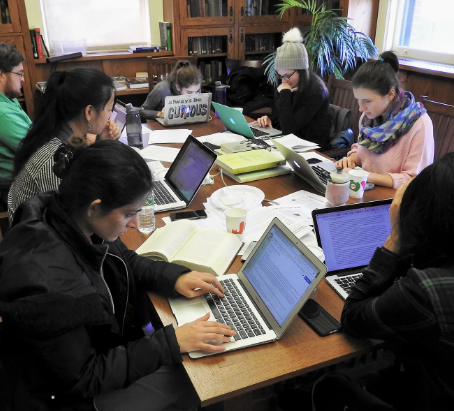Online encyclopedias are valuable tools for students seeking reliable, well-organized, and easy-to-understand information. They provide background context, definitions, and summaries that can support research projects, homework assignments, and class presentations. High school students, in particular, can benefit from encyclopedias that are accessible, fact-checked, and designed to enhance independent learning. With so many available, choosing the right ones can save time and improve the overall quality of schoolwork.
1. Britannica School
Britannica School is a student-focused version of the well-known Encyclopedia Britannica. It offers articles tailored to different reading levels—elementary, middle, and high school—making it ideal for a wide range of learners. Students can explore topics across science, history, literature, and current events. Features include citation tools, image galleries, timelines, and related content. Britannica also includes audio versions of many articles, which is useful for auditory learners and English language learners.
Teachers can assign readings, and students can access leveled articles on the same topic, making differentiated learning more manageable. Britannica School is commonly available through school library subscriptions, and it supports remote access for homework and project research.
2. World Book Student
World Book Student is part of the World Book Online platform and is geared specifically toward middle and high school users. It provides comprehensive articles, multimedia resources, and research tools. The interface is student-friendly, with highlighted vocabulary, maps, videos, and links to related subjects. It also includes citation support and lesson extension ideas. Students can use its “My Research” feature to collect articles, save bookmarks, and compile content for school projects.
World Book also provides comparison tools, timelines, and biographies, making it a great resource for preparing essays and reports. The platform promotes independent learning by encouraging students to explore interconnected topics.
3. Gale In Context: High School
Gale In Context: High School offers curated encyclopedia entries along with full-text magazine articles, academic journals, primary sources, images, and audio clips. Designed for grades 9–12, it covers subjects like U.S. and world history, science, literature, and government. Its built-in tools allow students to highlight, annotate, and save articles for easy organization.
Gale’s content is updated regularly, and articles include reading-level indicators, which helps students find appropriate materials for their reading ability. The platform also supports Google and Microsoft integration, making it easy to save and share resources for collaborative projects.
4. Encyclopedia.com
Encyclopedia.com aggregates content from respected sources including Oxford University Press and Columbia University Press. It’s a good tool for basic research and offers links to primary sources, dictionary definitions, and related articles. While it includes some ads, the site is free and easy to search.
The platform helps students get quick definitions and overviews of topics that can serve as launching points for deeper research. It is especially useful when students are short on time and need a reliable source quickly.
5. Stanford Encyclopedia of Philosophy
Ideal for advanced students or those studying philosophy and ethics, the Stanford Encyclopedia of Philosophy is maintained by professional scholars and provides in-depth, peer-reviewed entries. While the reading level is high, the content is reliable and academically rigorous.
It is often used in AP Philosophy or Honors-level humanities courses where students need detailed, nuanced definitions and discussions of philosophical theories and figures. Each entry is reviewed and updated regularly by academic experts.
6. Simple English Wikipedia
For students who need concise and accessible explanations, Simple English Wikipedia offers shorter articles written in basic vocabulary. It’s a good starting point for students learning English or needing an introduction to complex topics. It should be used for background understanding, followed by deeper research in more academic sources.
Although not always suitable for direct citation in academic work, it can be a helpful springboard for understanding a concept before diving into more rigorous material.
7. DK Find Out!
While designed for younger learners, DK Find Out! is highly visual and helpful for high school students who prefer visual explanations and quick facts. Topics include space, animals, human body, and history. It’s useful for building foundational knowledge or supplementing a presentation with visuals.
The platform uses infographics, quizzes, and 3D models, making it particularly useful for students who enjoy interactive or visual learning experiences. It can help make complex scientific and historical content more digestible and engaging.
8. Smithsonian Learning Lab
Though not a traditional encyclopedia, the Smithsonian Learning Lab offers curated digital collections on history, science, culture, and the arts. Students can explore museum-quality resources, build custom collections, and incorporate high-quality images and artifacts into their schoolwork. It is especially valuable for students working on visual presentations or inquiry-based projects.
Teachers can create guided activities using the Lab, and students can search by theme or topic, integrating primary sources into their assignments in creative ways.
How to Use Online Encyclopedias Effectively
- Begin with a broad search to understand your topic before narrowing your focus.
- Use multiple encyclopedias to gather a variety of perspectives and fill in any gaps.
- Cite all sources, even for background research, to maintain academic integrity.
- Save articles in a digital notebook or cloud storage for easy access during the research and writing process.
- Pair encyclopedia research with primary sources, scholarly articles, and teacher-recommended materials for a well-rounded project.
Conclusion
Online encyclopedias help students build background knowledge, clarify complex ideas, and launch successful research projects. By using trusted platforms with student-friendly features, learners can strengthen their study habits and develop academic independence. Whether used for homework help, class presentations, or long-term research projects, these encyclopedias provide a solid foundation for informed and effective learning. With thoughtful use, these resources support curiosity, literacy, and a lifelong love of learning, while preparing students to succeed in an increasingly information-rich world.














